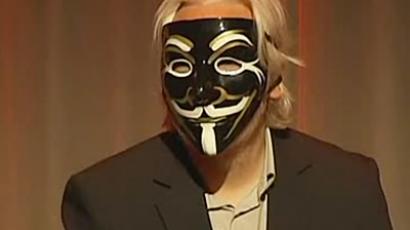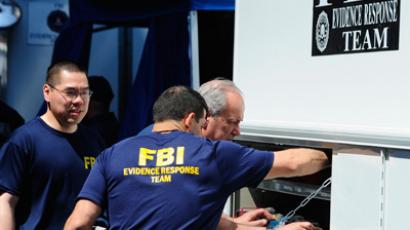Wikileaks will carry on despite crackdown on whistleblowers - spokesman
A systematic crackdown on whistleblowers worldwide will not prevent Wikileaks from exposing illegalities and corruption, press spokesman Kristinn Hrafnsson told RT. The project is to open an anonymous drop-box and is calling for more evidence.
However unpredictable the future of Wikileaks, the project has never exposed its informers and is open to cooperation with anyone not afraid of blowing a whistle, Hrafnsson says.RT:How did you come to join Wikileaks?Kristinn Hrafnsson: Julian Assange was working in Iceland the winter 2009-2010. After that Wikileaks actually produced a tremendously important leak which exposed corruption within Iceland. It shed light onto why the entire banking system of Iceland collapsed in 2008. I met him in that period when he was in Iceland working on other things.I joined Wikileaks full time in summer 2010.RT: And how is it to be the second public face in Wikileaks at such a difficult time?KH: I’ve been finding it extremely interesting. Any journalist would find it interesting to take part in the biggest leaks in history that basically transformed politics in certain areas. It has been a total game changer, a paradigm change.RT: What do you perceive is the other journalists’ response?KH: There are very mixed feelings among journalists. We worked with excellent journalists who understand the importance of Wikileaks. We also worked with other journalists who turned their backs on us. We’ve felt a very strong animosity among some groups of journalists as well. It is hard to tell what exactly causes it. Many of them have been dishonest and spiteful in covering Wikileaks. I have no idea why it is so, but it is a fact.RT: Does it concern you that things have moved away from very important aspects, such as leaks themselves, to Assange overshadowing more important issues? Does that concern you?KH: The focus has always been on the independent path: we have not always been able to decide how it was handled. For example the first project I took part in was that collateral murder video released in April 2010. I was surprised by the fact that the biggest stories were actually on Wikileaks itself and Julian Assange.This video exposing a war crime got much less attention and is still getting much less attention than it deserves. But that is the media for you. The media will decide where the focus is. That is the reality we live in.RT:Where do you see the future of Wikileaks?KH: It’s very hard. We’ve been starved of 95 per cent of our funds. Julian Assange is facing legal battles. We know that in July the Secret Grand Jury will be trying to find angles of bringing cases against Julian and possibly other members of our organization. People supporting Wikileaks have been harassed when they interview us, even US citizens. So it is hard to predict.I believe that despite everything we will look back at the accomplishments of Wikileaks, which are great.RT:Is it a battle between Wikileaks and big corporations and governments?KH: I see it as a battle against corruption, lies and secrecy. RT: Who do you think is going to win?KH: Well, it’s hard to say but let’s hope that Rupert Murdoch was right in early 1950s when he was an editor in Australia, where he wrote in an editorial that in the race between truth and secrecy the truth will always win. I hope he remembers his words himself though some others doubt it……We have seen basically a systematic crackdown on whistleblowers, especially in the US, a very serious one. An old Espionage Act of 1917 is being used to haunt those who are blowing the whistle on illegalities and corruption, which is hurting the general public and costing the taxpayer a lot of money.RT:The legal protection offered to potential whistleblowers cannot necessarily be relied on at the moment. Wikileaks promotes anonymous leaks. What can you actually offer to a whistleblower when he comes to you? How much protection can you offer them?KH: Wikileaks has a very impressive track record in that respect. Nobody who contributed material to Wikileaks has been exposed by anything that Wikileaks has done. Hopefully that will stay like that. We’re still working on re-opening an anonymous electronic drop-box which allows people to submit information to us without being traced: we wouldn’t even be able to do it ourselves. Let’s hope that it will open soon. Meanwhile, we’ve had information delivered to us and published anonymously on this very important channel for whistleblowers.














